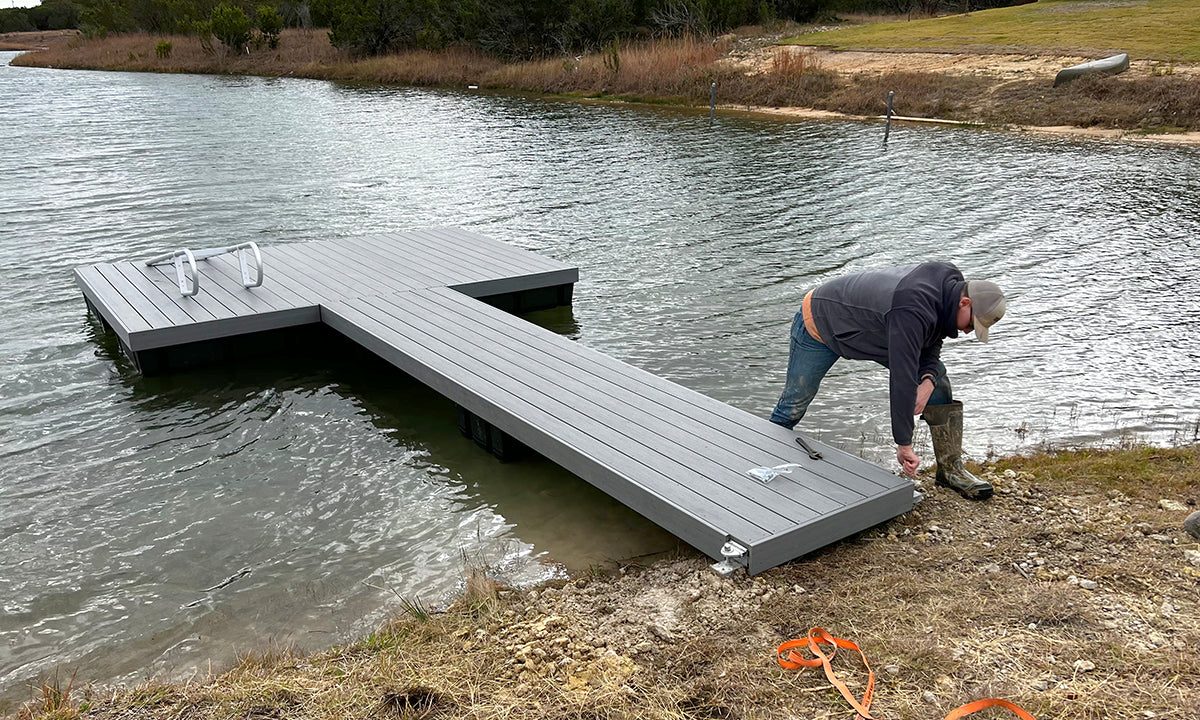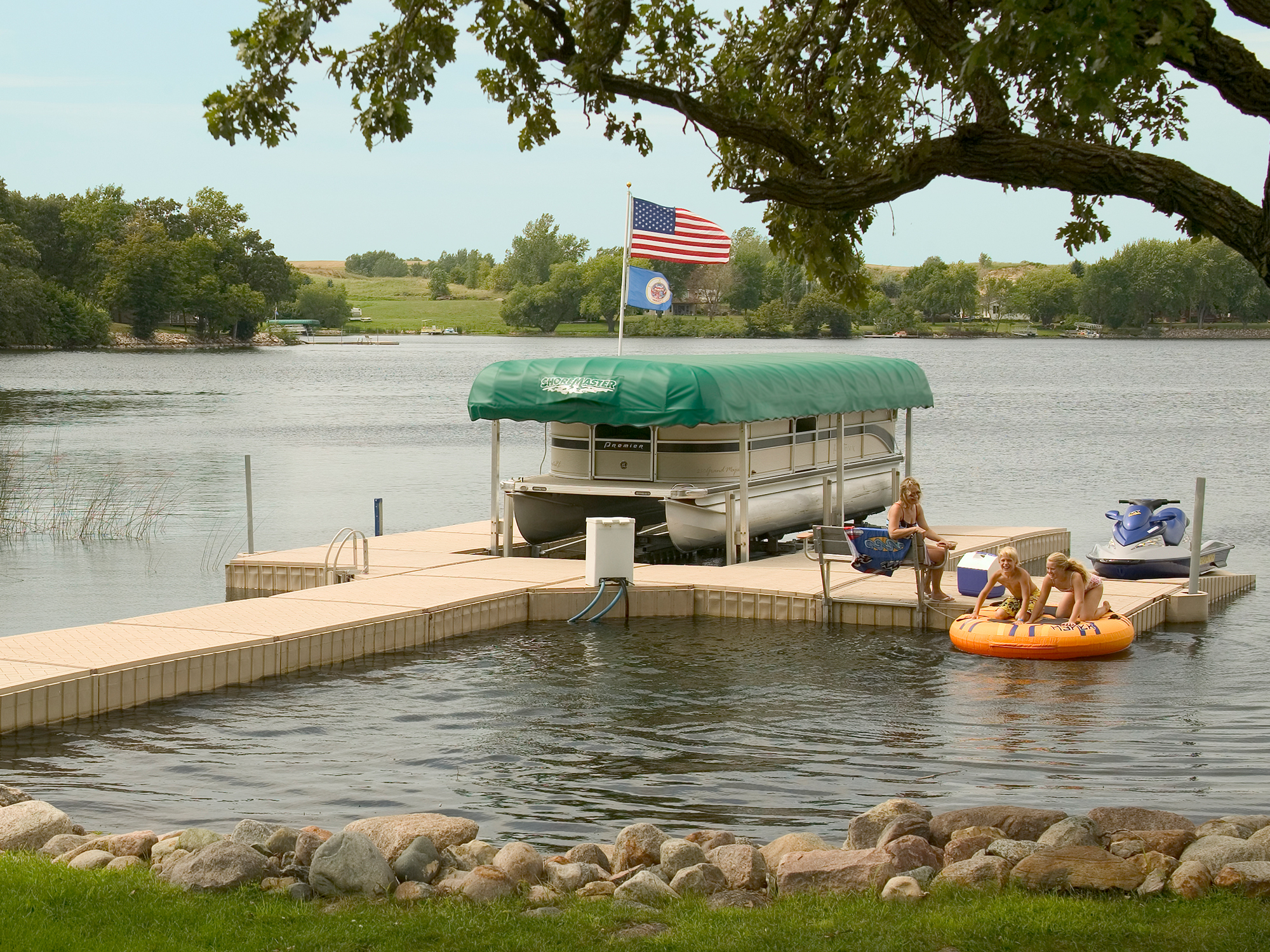Floating Docks: The Ideal Option for Versatile Water Access
Floating docks existing a compelling option for a range of water accessibility needs, supplying flexibility that transcends standard mooring choices. The modular nature of floating docks assists in customization, providing to certain requirements.
Benefits of Floating Docks
Floating docks deal many advantages that improve water accessibility for various applications. Their ability to fluctuate with transforming water levels makes them particularly useful in settings with rising and fall trends or seasonal variants. This flexibility makes certain that vessels can easily moor without concern for the water's depth, supplying a trustworthy platform for recreational, business, and industrial uses.
Furthermore, floating docks are commonly built from durable materials that withstand deterioration, making them suitable for long-lasting use in marine environments. Their setup is normally much less intrusive than standard fixed docks, minimizing the environmental impact and assisting in quicker release (floating dock builder). This versatility enables less complicated relocation or reconfiguration according to individual needs or environmental modifications
Safety is another essential advantage; floating docks can supply steady access for people boarding or disembarking from boats and minimize the threat of mishaps related to unpredictable surfaces. They can be developed to accommodate a selection of devices, such as cleats and fenders, enhancing functionality. On the whole, floating docks stand for a reliable option for improving water accessibility throughout diverse sectors while advertising security and environmental sustainability.

Sorts Of Floating Docks
Numerous sorts of floating docks provide to different requirements and settings, each developed with details features to enhance capability. The most typical kinds consist of modular docks, which contain interlacing areas that permit simple modification and development. These docks are optimal for entertainment use, as they can be tailored to fit various watercraft dimensions and water problems.
Another popular choice is the fixed floating dock, which continues to be anchored in place however drifts with transforming water degrees. floating dock builder. This type is specifically fit for locations with marginal tidal variations, supplying stable accessibility for angling or swimming. Furthermore, there are drive-on docks, which include a sloped style that permits watercrafts to conveniently drive on and off, making them ideal for individual boat and smaller sized vessels
For business applications, heavy-duty floating docks are available, created from reinforced products to stand up to significant lots and rough marine environments. Finally, green floating docks use lasting products and layouts to minimize environmental influence, often incorporating features like plant life to sustain neighborhood wild animals. Understanding the different kinds of floating docks makes sure that users can pick one of the most suitable solution for their details demands.
Setup Refine Introduction
A successful installment of floating docks needs careful preparation and attention to information to guarantee optimum performance and safety. The first step entails evaluating the website conditions, consisting of water depth, existing, and prospective barriers. This evaluation educates the selection of the suitable dock products and style tailored to the particular environment.
Next, obtaining required authorizations is vital, as many territories have policies pertaining to construction on water bodies. Once authorizations are protected, the installment can proceed. Begin by preparing the foundation, which may involve anchoring systems or pilings tailored to the dock type and local problems.
Adhering to the foundation setup, assemble the dock areas according to manufacturer specifications. Guarantee that all components are firmly attached and aligned to hold up against ecological tensions. Setting the dock in the marked location, ensuring it is degree and steady.

Upkeep Tips and Ideal Practices
After the installment process is complete, ongoing upkeep plays a crucial function in guaranteeing the durability and performance of floating docks. Regular evaluations should be carried out to determine any kind of signs of damage, wear, or damage - floating docks. Inspect for any type of loose fittings, cracks, or splitting up in the next dock sections, as these can compromise structural stability
Cleaning the dock is important to get rid of particles, algae, and various other build-up that can impact its look and safety and security. Utilize a gentle pressure clean regularly to maintain tidiness without causing damages to the surface. Additionally, using a protective sealer every few years can assist enhance longevity and stand up to environmental wear.
Focus on the mooring lines and supports, guaranteeing they are protected and cost-free from deterioration. Replace any type of abject parts immediately to avoid hazards. Seasonal modifications may also be required; throughout severe climate condition, repositioning or enhancing the dock can avoid damage.
Applications for Floating Docks
Floating docks serve a multitude of applications, dealing with both commercial and entertainment needs. In entertainment setups, they provide seamless access to waterways for activities such as boating, fishing, and swimming. Their adjustable nature enables installation in varying water levels, making sure safe and secure accessibility regardless of tidal fluctuations.
Readily, floating docks are important for marinas and beachfront services. They help with the docking of vessels, enabling reliable unloading and loading of goods. Their modular style permits very easy expansion or reconfiguration to suit altering organization needs, making them ideal for boat leasings, trip procedures, or angling charters.
Additionally, floating docks are used in ecological applications such as aquatic research and environment restoration. They can serve as platforms for clinical studies, monitoring water high quality, or conducting wild animals studies without troubling sensitive ecosystems.
In industrial contexts, floating docks are employed in building and construction projects, offering access to hard-to-reach locations for tools find more and personnel. Their versatility, sturdiness, and minimal effect on the atmosphere make them an ideal selection for a vast array of applications, enhancing both capability and availability in numerous water-based environments.
Conclusion
Finally, floating docks represent an optimum remedy for diverse water gain access to needs, owing to their versatility, durability, and modular style. These frameworks promote safe mooring for various applications while reducing ecological effect throughout installation. The decreased maintenance needs even more improve their functionality. Floating docks serve as a beneficial property for recreational, industrial, and environmental tasks, ensuring dependable accessibility to rivers and advertising lasting techniques in water environments.
Floating docks present an engaging option for a variety of water accessibility needs, providing adaptability that goes beyond traditional mooring options.Floating docks deal many advantages that boost water access for different applications. Generally, floating docks stand for a reliable remedy for improving water accessibility throughout varied sectors while promoting security and ecological sustainability.
One more prominent choice is the stationary floating dock, which remains secured in area however drifts with changing water degrees.In final thought, floating docks represent an ideal service for diverse water accessibility requires, owing to their versatility, longevity, and modular why not try this out layout.